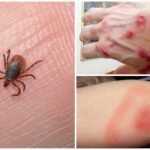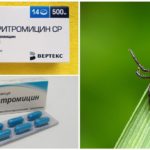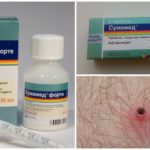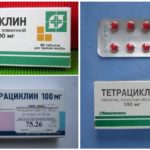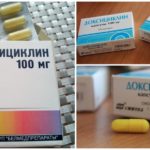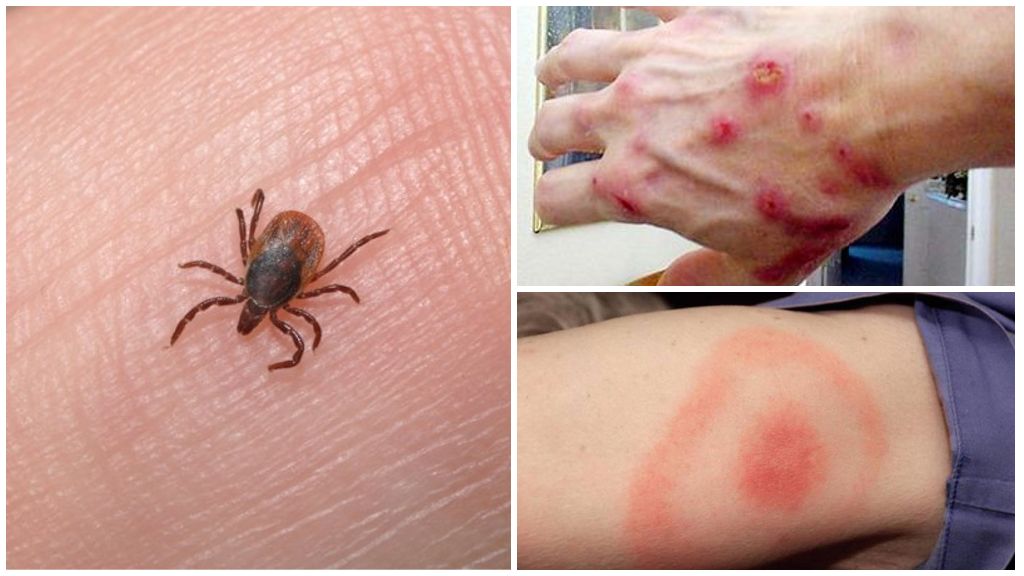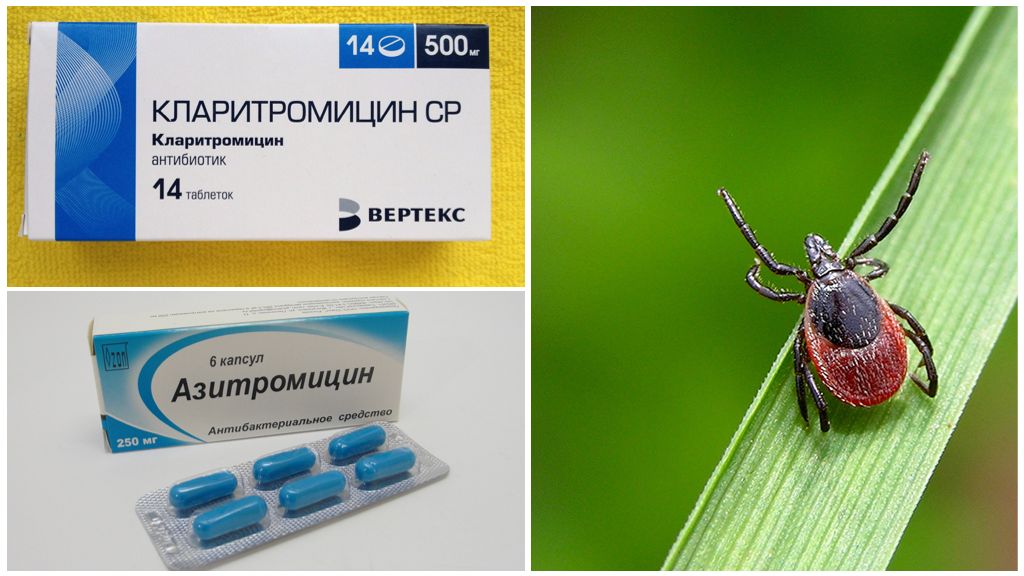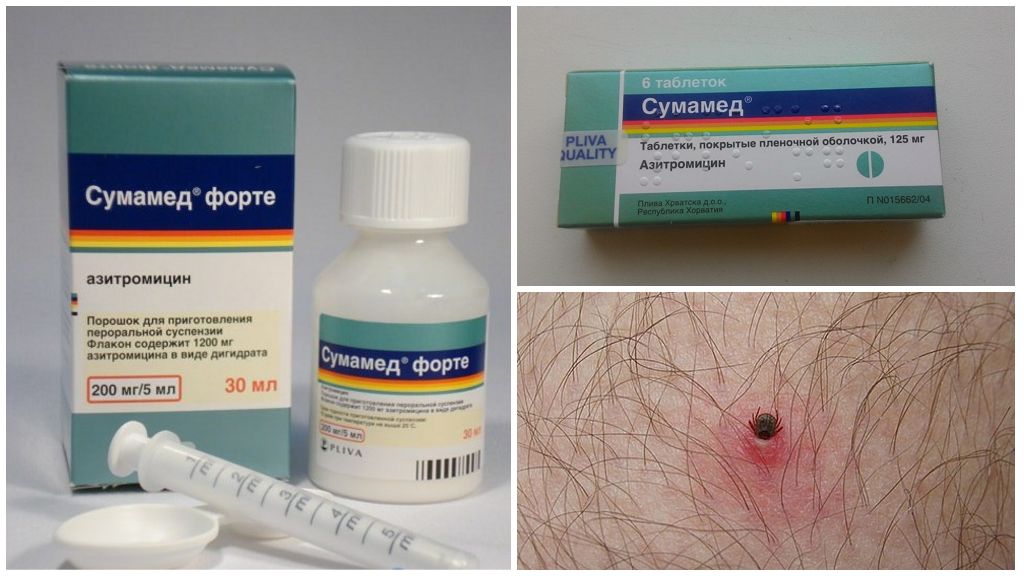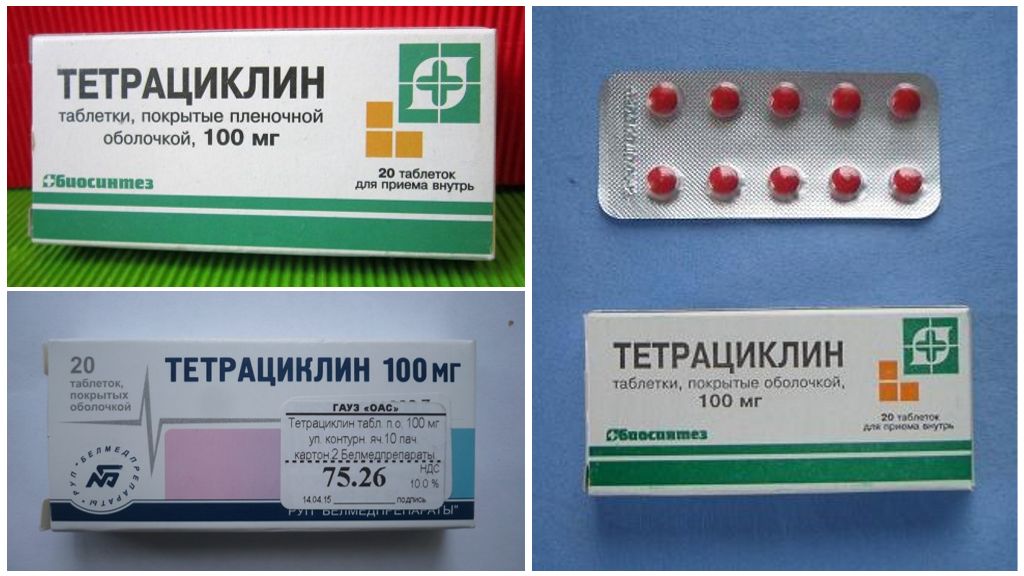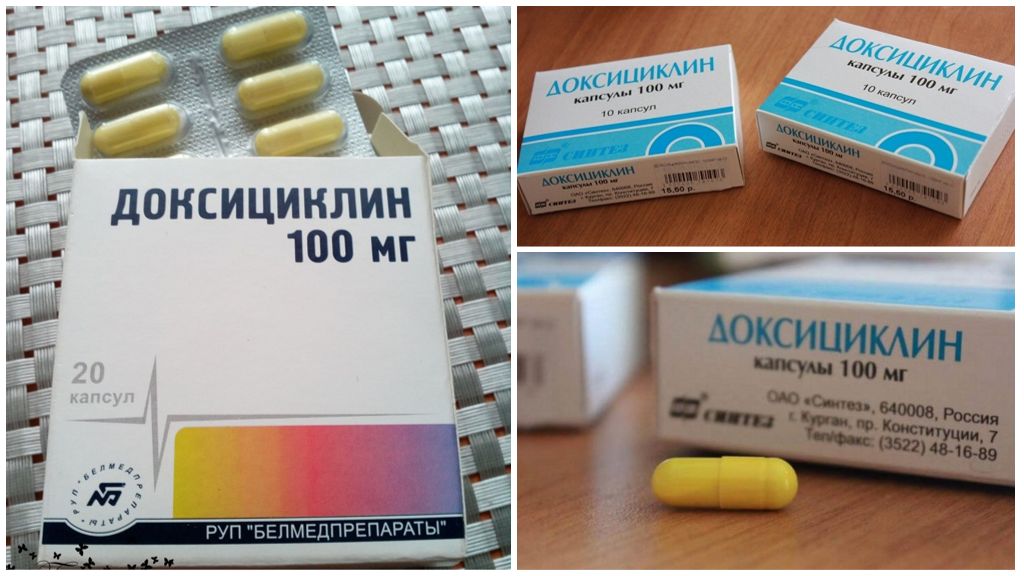Antibiotics after a tick bite
Content
- Tick Bite Disease
- Antibiotics after a tick bite
- Sumamed with tick bite
- Tetracycline when tick bite
- Doxycycline for the treatment of tick bite
A tick bite is a danger that many people face when resting in a forest, park or country house. Moreover, parasites can bite not only adults, but also children. The situation is further aggravated by consideringthat bloodsuckers are carriers of diseases that can not only seriously undermine human health, but also lead to death. Prevent the development of complications and serious consequences capable of antibiotics when a tick bite.
What to do after a tick bite
When the symptoms of a tick bite or the bloodsucker directly itself are detected, the victim is given first aid, which consists in removing the parasite and treating the lesion. After it is necessary to take the extracted animal to the clinic, as well as to pass an analysis, according to the results of which, if necessary, the doctor will prescribe certain pharmaceutical preparations. In some cases, antibiotics are prescribed to patients after a tick bite.
On a note!
A disease carrier is not every tick. Most infections, thanks to a strong immune system, do not cause an infectious lesion. The bite is not accompanied by pain, because of which the sucking pest can go unnoticed for a long time. Symptoms of pathology occur after some time and directly depend on the individual characteristics of the human body, as well as the number of parasites that have adhered.
What is prescribed antibiotics after a tick bite
However, ticks are often found, which can be carriers or intermediate hosts of the following types of infections:
- tick-borne viral encephalitis;
- borreliosis;
- anaplasmosis;
- rickettsiosis;
- ehrlichiosis, etc.
Particularly dangerous is borreliosis, a disease that affects not only the skin and joints of a person, but also the cardiovascular and nervous systems. And if it is possible to be vaccinated to protect against tick-borne encephalitis, it will be powerless against other diseases caused by a parasite, including borreliosis. Therefore, the sooner a person takes an antibiotic after a tick bite, the greater the chances of avoiding the irreversible effects that can be fatal.
Most often, the signs of infection after a tick bite begin to appear already after an hour from the moment of parasite lesion of the skin. In the lesion there is swelling and redness with clear boundaries (erythema). Such signs are evidence of Lyme spirochete infection. Moreover, erythema is migratory, and therefore, can occur in other parts of the body.
Important!
Taking antibacterial drugs is aimed at stopping the infection and symptoms of an infectious disease. The regimen, dosage and duration of the course of therapy with antibiotics after tick bites are prescribed only by a doctor and individually. Since therapy in the specific development of the disease can vary and the use of drugs, and the duration of the period. Usually, medication is prescribed from 10 to 20 days after the onset of signs of the disease.
Self-medication can also weaken the immune system, disrupt the functioning of the liver and kidneys, causing a strong allergic reaction of the skin.
What antibiotics to take with a tick bite
An antibiotic for ticks can have various forms of release. In the first stage of treatment, the doctor usually prescribes oral medications in encapsulated, tablet or liquid form, which are characterized by good absorbability. However, when released into the acidic environment of the gastrointestinal tract, such antibacterial agents can also be destroyed.
When confirming the presence of tick-borne infection, intramuscular and intramuscular administration is prescribed.injections. Antibiotics of this category can also be in the form of powders from which injection solutions are prepared.
Antibiotics for prophylaxis
An antibiotic for prophylaxis helps prevent infectious complications. Below is a list of the most popular drugs.
Clarithromycin
It is an antimicrobial agent, in which clarithromycin acts (250 or 500 mg in one tablet). As excipients, corn starch, lactose, talc, colloidal silicon dioxide are used.
- The drug is intended for the treatment of infections caused by various microorganisms sensitive to the drug. The composition is also prescribed for diseases of the respiratory system, for the treatment of infected wounds, furunculosis and folliculitis.
- An antibiotic with a tick bite in adults and children over 12 years old is prescribed in a dose of 250 mg, in the presence of severe infections, the dose is increased to 500 mg 2 times a day. The drug is taken, regardless of the food 2 times a day.
- The duration of treatment depends on the degree of the disease and varies within 1-2 weeks.
When using the drug may have side effectswhich manifest themselves in the form of an allergic reaction, tachycardia, a disturbance in taste, nausea, vomiting, dizziness.
Important!
Antibiotic use is not recommended for children under 12 years of age, people with hypersensitivity to the drug components, as well as women during pregnancy. The cost of a blister is 10 tablets with a dosage of 250 mg within 130 rubles.
Azithromycin
An antimicrobial drug of the macrolide group, which has a wide spectrum of action. Used for the treatment of intracellular and bacterial infections of different localization, for the treatment of skin, respiratory and ENT infections, chlamydia and Lyme disease, as well as uncomplicated diseases of the genitourinary system.
Azithromycin is taken one hour before meals or 2 hours after a meal. The daily dose and duration of treatment is prescribed by the attending physician, based on the individual characteristics of the organism. Usually the daily dose does not exceed 250-500 mg.
- For the treatment of infections caused by tick bites, the drug is taken 2 times a day, 500 mg, 250 mg from 2 to 5 days of therapy.
- Children over the age of five prescribed dose, taking into account the weight of the child.On the first day of therapy, they are used at the rate of 10 mg / kg of body weight, on the following days, at a dose of 5 mg / kg of body weight.
Taking an antibacterial agent is contraindicated in lactating and pregnant women, children up to 5 years old, people with severe liver disease (kidneys) and intolerance to this group of antibiotics.
Important!
Taking the antibiotic can cause side effects in the form of frequent headaches, digestive disorders and loss of appetite, increased bilirubin and urea.
The cost of the drug varies depending on the dosage and the number of tablets (capsules) in the range of 65-110 rubles.
Feedback
Azithromycin was prescribed to the son after a tick bite even before receiving test results. They drank an antibiotic, as prescribed by the doctor, passed the analysis - everything is normal.
Olesya, Uman
Sumamed
Another antibiotic with a wide spectrum of action from the group of macrolides, based on azithromycin. Presented in the form of hard gelatin capsules containing a yellowish crystalline powder. The composition has bactericidal properties, so effective:
- with tick-borne infections (Lyme disease);
- infected dermatoses;
- in the treatment of upper respiratory tract and inflammation of the genitourinary system.
Available in the form of tablets and powder for the preparation of suspensions.
The drug is recommended for use in adults and children weighing more than 45 kg. With a tick bite and the presence of erythema migrans, the total dose should not exceed 3 g. On day 1, take 4 capsules at a time (1 g), then 2 capsules at a time (500 mg each day). The duration of treatment is 5 days. Sumamed is taken one hour before meals or 2 hours after eating.
Important!
When using an antibacterial agent, side effects are possible, which are expressed in the form of nausea, vomiting, flatulence, an allergic reaction and increased activity of liver enzymes.
The composition is contraindicated in pregnancy, lactation, the presence of hypersensitivity to azithromycin, erythromycin and other macrolide components of the drug.
The cost of packing 6 capsules of 250 mg in the range of 460 rubles.
Tetracycline
An antibiotic of the tetracycline group, which has a bacteriostatic action. The preparation based on tetracycline hydrochloride is effective against various gram-positive and gram-negative microorganisms, rickettsia, spirochetes, leptospira and other viruses.Tetracycline can be bought in the form of tablets, dragees, granules of which make a syrup, and suspensions intended for oral administration.
For better absorption, take the medicine 1 hour before or 2 hours after eating, drinking plenty of water. For adult patients and children from 12 years of age, the daily dose of tetracycline is 2 tablets (2 g). In the treatment of severe infections, the dose is increased to 500 mg. The course of treatment is up to 7 days. Drink antibiotic should be another 1-3 days after the disappearance of signs of the disease.
Important!
Contraindications are pregnancy and breastfeeding, the presence of fungal diseases and hypersensitivity to the components of the antibacterial agent. Do not take an antibiotic for children under 12 years old.
Allergic reactions, dyspeptic symptoms, kidney and liver damage, dysbiosis, pigmentation of the skin and altered mucous membranes are possible as side reactions.
The price of 20 tablets of tetracycline (100 mg) is about 60 rubles.
Feedback
I decided to drink an antibiotic myself, after I discovered a tick bite. However, my tetracycline caused a severe indigestion.Then I struggled with this problem for a long time. Therefore, it is better to consult with your doctor what and how to take in such situations.
Catherine, Barnaul
As a preventive measure, Augmentin, Jodantipirin, Remantadin, Bicillin-5 are also prescribed for tick bites.
Antibiotics for treatment
If the result of laboratory studies of a parasite that caused a bite to a person was an identified infection, then in order to prevent its development, a course of antibiotic therapy is prescribed.
Doxycycline is a tetracycline antibiotic with a broad spectrum of action and inhibits the ability of microbes to multiply.
- Effective against aerobic and anaerobic infections, as well as various fungi and viruses. It is prescribed for the treatment of infectious diseases, respiratory organs, skin infections and sexually transmitted diseases, eye and urinary tract diseases.
- The medicine is produced in the form of a powder, from which a solution is prepared for intravenous administration, and capsules for oral administration.
- The dose for adult patients, as well as the frequency of treatment and the duration of treatment depends on the type of pathogen and the individual characteristics of the organism, therefore, are determined solely by the doctor.Usually, on the 1st day of treatment, 200 mg is taken, then 100 mg of an antibacterial agent. In acute infections, a daily dose of 200 mg is prescribed for the entire course of treatment.
- The pediatric dose is calculated based on the weight of the child: 4 mg per kg of body mass - on the 1st day of treatment, 2-4 mg per kg of body mass - in the following days. Capsules are taken once at the same time of day or twice a day with a break of 12 hours, drinking plenty of water.
You can not take an antibiotic during lactation and in the second half of pregnancy, in the presence of hypersensitivity to the components of the tool and severe liver failure, as well as children weighing up to 45 kg.
Important!
A side effect is manifested by nausea, abdominal pain, edema, and an allergic reaction. Prolonged use of the composition can cause dysbacteriosis, anemia, changes in tooth enamel and candidiasis.
Doxycycline price capsules 100 mg 20 pcs. about 30 rubles.
Feedback
Previously, doxycycline saw with acute respiratory infections, his doctor appointed him when I found a tick on my body. This medicine does not cause me any allergies or other side effects. However, everything is individual, for some it may not be suitable.Therefore, no wonder they say that this kind of drugs should prescribe a doctor.
Valentine, Pskov
Similar antibacterial properties are also drugs of the following brands: Amoxicillin, Realdiron, Claforan, Minocycline, Ceftriaxone, Emesef.

